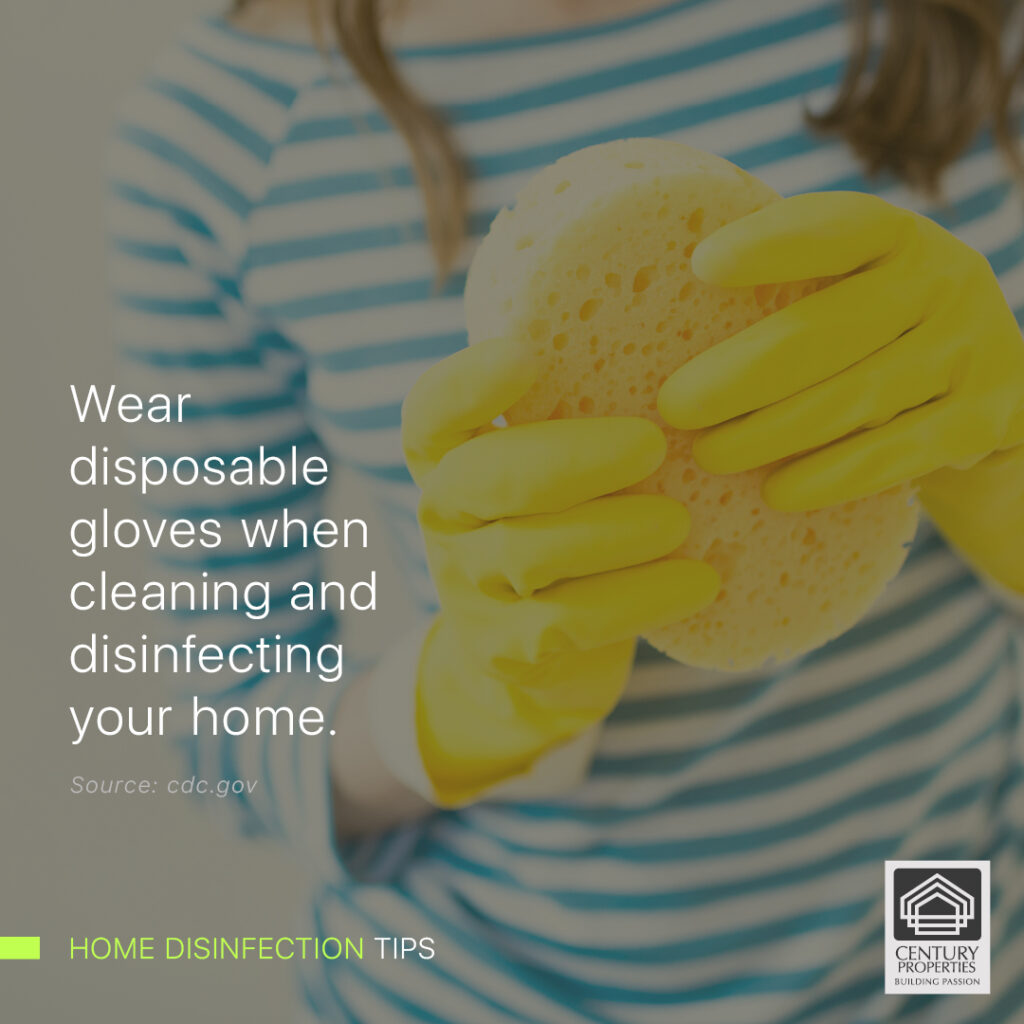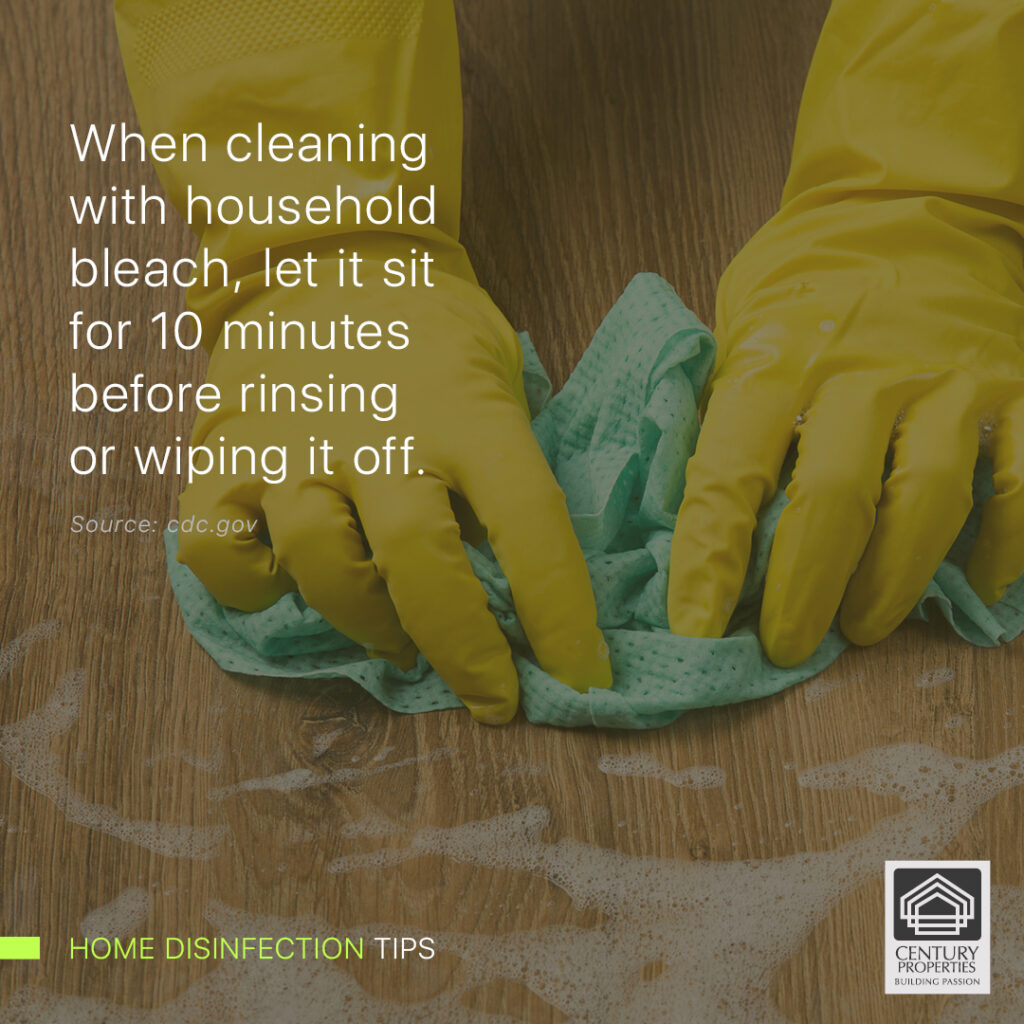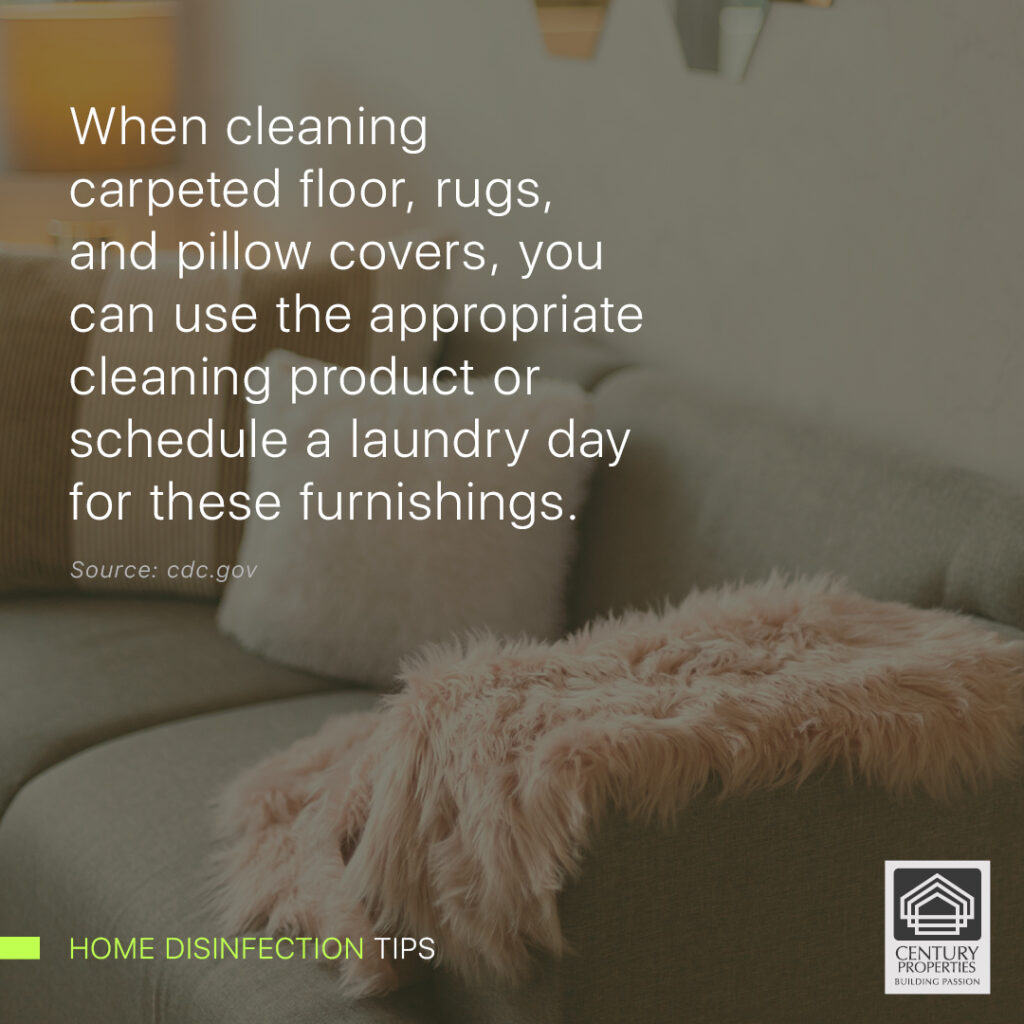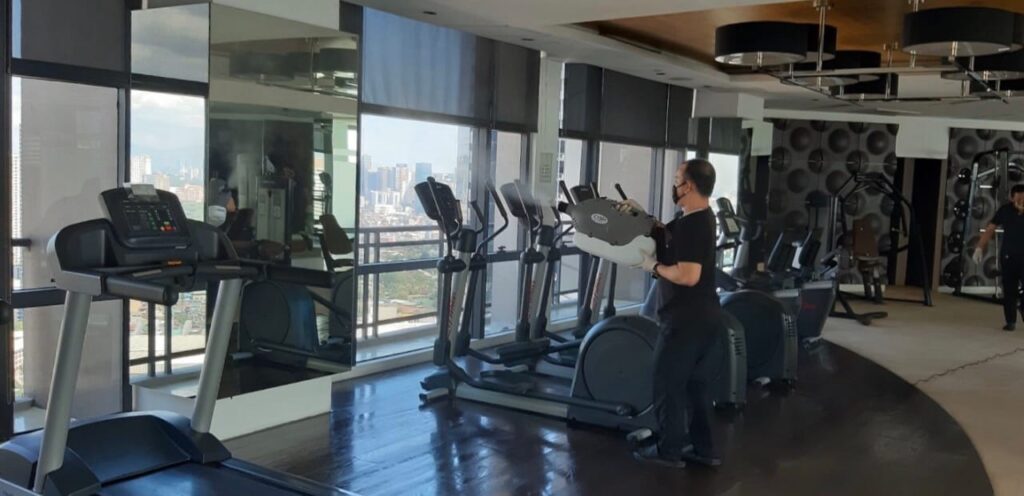During this period of enhanced community quarantine, all of us are adjusting to government-mandated regulations to help stop the spread of COVID-19. Aside from constantly monitoring the news and following the schedules meant for running errands, we can all contribute to the cause by properly disinfecting the home. Doing so doesn’t just prevent germs from spreading, it helps keep you and your family safe and healthy as well.
According to the Centers for Disease Control and Prevention (CDC) website, tables, countertops, doorknobs, light switches, and other frequently touched items and surfaces must be disinfected to avoid the spread of diseases. In these trying times, we must prioritize our
health by practicing proper personal hygiene and keeping in mind these helpful reminders:
Always wear disposable gloves.

Prevent contamination and spreading germs from one surface to the next by wearing disposable gloves. These essentials can also protect you from the strong chemicals that many cleaners have.
Know which areas of the home to prioritize.
Think about the surfaces and areas you touch or use frequently. The CDC has identified doorknobs, light switches, handles, desks, faucets, keyboards, and your mobile phone as high touch surfaces at home. These surfaces can be cleaned using a soap and water solution.
Always check and review the labels of the disinfectants you’re using.
The soap and water solution is the most common and easiest to use when cleaning the home. If you’re using multipurpose cleaners and other disinfecting products, don’t forget to read the labels to ensure effectivity. Following instructions carefully can also help avoid damaged
surfaces.
When buying alcohol, choose those with 70% alcohol.
An article on Apartment Therapy notes that 70 percent alcohol can disinfect better than those with 91 percent as the former has more water in it, making it more effective. As a microbiologist explains, “seventy percent alcohol has some water in it that allows it to cross a
cell membrane, to really get into the bacteria to kill them.”
Let bleach sit before rinsing.

Bleach is a powerful disinfectant but the effect is not instant. In an interview with Northwester Now, environmental engineer Erica Hartmann says that for household bleach to work, you need to let it sit on the surface for 10 minutes before wiping it off.
When cleaning and disinfecting with bleach, remember to dilute it properly before using it around the home. The CDC recommends mixing one cup or 240ml of bleach in one gallon of water. The resulting mixture can be used to wash surfaces in your space. As much as we want
to create an effective cleaning solution, remember not to mix bleach with other products without proper research as doing so can be harmful to your health. For starters, keep in mind that bleach should NEVER be mixed with the following *products:
Vinegar – mixing this staple with bleach can produce chlorine gas that may cause coughing and
breathing problems
Ammonia – it produces a toxic gas that causes chest pains
Rubbing alcohol – mixing bleach and rubbing alcohol produces chloroform which can be toxic
*Based on an article from Good Housekeeping
Dispose garbage properly and clean your waste bins.
Check with your building administration or PMO about the schedule of garbage collection. Make sure you practice proper waste segregation by allotting a bin for dry waste and another for wet waste. You can also separate biodegradable from non-biodegradable – check if your
condominium has specific rules about this.
After segregating your trash, don’t forget to clean your trash bins properly. To clean your trash can, The Kitchn suggests using a nylon bristle scrub brush, your choice of disinfectant, and an old towel. Wear your rubber gloves and wash the can – you can hose it down in the bathroom. Make sure there are no particles left in the can before washing it to prevent debris from clogging your drains. After washing it, spray the inside, outside, top, and bottom of the bin. Scrub it thoroughly using the brush and allow the cleaner to sit for five minutes or more before rinsing. Air dry your trash cans before using it again.
Wash your hands properly and thoroughly.
By now, you’ve seen the tips circulating online about proper hand hygiene. You need to wash your hands often with soap and water for 20 seconds to be able to get rid of germs. Singing the chorus of your favorite song while doing so is a good guide to see if your 20 seconds are up.
Boost your immune system.
In addition to these disinfecting tips, don’t forget to safeguard your overall well-being by eating a balanced diet, getting enough sleep, and allotting time for exercise. In an article on ABC, dietitian and University of Newcastle professor Clare Collins shares that, “there is no one food that can magically supercharge the immune system.” She recommends eating foods that are rich in vitamins A, B, C, D, and E, as well as the minerals iron, zinc, and selenium.
Wash your soft furnishings.

Schedule a laundry day for soft furnishings like carpets, rugs, pillow covers, and even curtains.
#CenturyAtYourService
As extra protection against the COVID-19 virus, Century City buildings, Acqua Private Residences, Azure Urban Resort Residences, and The Residences at Commonwealth by Century are using misting machines to sanitize its common areas and offices daily. With the use of the
cleaning solution, the machines are able to sanitize spaces and kill germs faster while covering large and hard-to-reach areas efficiently.


The disinfection program, specifically the bio-hazard misting program in the aforementioned properties, is held twice a day every day and ensures general environment sanitation in time of health emergencies. Using effervescent disinfectant tablets and US made misting machine which has UVL capacity of 5-20 microns eliminate pathogens in places that often cannot be reached by conventional cleaning.
For concerns and other inquiries, the property management team continues to be of service around this time. Call your concierge or resident relations officer for assistance. Read our CEO’s message and take note of our helplines when you click here.





